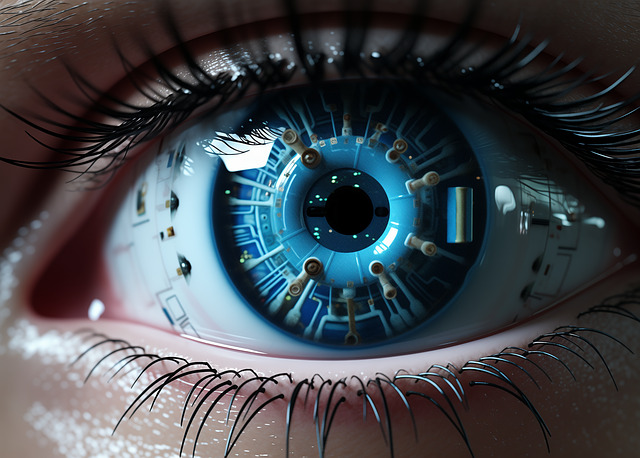Artificial intelligence is transforming numerous sectors and professions thanks to its learning and automation capabilities. From virtual assistants to medical diagnostics, and spanning finance and industry, AI helps optimize processes and improve decision-making. As a developer, I witness the impact of generative AI on my work every day.
I studied software engineering and AI at university about twenty years ago (seems like a long time ago… sigh), at a time when AI was emerging from a technological winter. Since then, the field has evolved profoundly, with accelerating advancements and an expansion of opportunities, both in terms of career paths and possible applications.
In this article, I will first briefly define AI, before exploring the main areas where it is driving real innovations.
What is Artificial Intelligence?
AI refers to tools that enable machines to replicate human behaviors such as reasoning and creativity. However, it can also surpass human capabilities in specific tasks, as demonstrated by AlphaGo, which excels at the game of Go but remains confined to this area. In essence, AI involves systems designed to mimic human reasoning, while also having the potential to outperform us in certain specialized domains.
Applications of AI
AI in software development
As a developer, I deeply appreciate the assistance of generative AI in my work! It allows me to automate many repetitive and unengaging tasks. Personally, I mainly use it for:
– Generating code: Whenever I need to write repetitive code, I create an initial prompt (e.g., GitHub Copilot, OpenAI Codex), then refine the results progressively by tweaking and improving what doesn’t work for me.
– Fixing compilation errors: There are times when I’m overwhelmed by a flood of error messages, making it hard to pinpoint the cause, especially when I’m not yet fully proficient in the language (for me, C++).
– Creating unit tests: Writing tests can be tedious, but with a well-crafted prompt, I save precious time. The result: no more excuses for skipping important test cases!
– Writing documentation: For instance, when developing a web service, I use AI to generate OpenAPI documentation. Instead of writing everything manually, I start with an auto-generated draft and adjust it to my needs.
AI hasn’t replaced me yet, but it enhances my productivity, allowing me to focus on more engaging tasks 🙂
Now, I’m keeping my fingers crossed that it will have an impact on my salary too… in a good way, of course! 😄
AI applications in healthcare
The healthcare sector is profoundly impacted by AI, offering a significant competitive advantage over rivals. Here are some of its key areas:
– AI-assisted diagnostics: AI enables rapid analysis of medical images (X-rays, MRIs, CT scans), allowing for the detection of abnormalities invisible to the human eye and improving diagnostic accuracy.
– Personalized treatments and predictive medicine: AI analyzes medical and genetic data to personalize treatments and predict disease risks, such as Alzheimer’s or liver cancer.
– Pharmaceutical research and surgical robots: AI accelerates the discovery of new medications and is used in surgical robots to optimize complex procedures, enhancing success rates.
These advancements reduce errors and increase the efficiency of care, making AI indispensable in healthcare. Considering the high costs in this sector, could AI help reduce healthcare expenses?
AI in media and entertainment
This field has already been significantly impacted by AI, and this trend is only going to accelerate. Here are some concrete examples where AI adds real value:
– AI-assisted content creation: AI is revolutionizing artistic and journalistic production. Tools like Jasper and AIVA generate scripts, music, and articles with no human intervention. AI Video Generator, such as Dreamlux, allows you to input text prompts or upload static images to create stunning videos. ChatGPT and DALL·E help create marketing content and striking visuals from simple prompts. In video games, AI will enhance experiences by making NPCs (non-playable characters) smarter and more interactive, promising more dynamic and immersive dialogues (I can’t wait!).
– Content personalization and recommendations: Machine learning algorithms are transforming how we consume movies, series, and music. Platforms like Netflix, Spotify, and YouTube use AI to analyze user preferences and offer ultra-targeted recommendations. In e-commerce, AI optimizes product suggestions, boosting conversion rates and average order value.
– Deepfakes and special effects: AI is also revolutionizing cinema and television. Technologies like deepfakes enable the creation of realistic faces, while AI enhances special effects, speeding up production and reducing costs. Digital actors might even replace extras one day!
– Chatbots and virtual assistants for customer service: AI tools are automating customer support, providing instant and accurate responses 24/7. With natural language processing, they understand and resolve user queries while reducing operational costs for businesses. Some assistants go even further by acting as community managers or even hosting streams and YouTube channels.
In summary, AI is deeply transforming media and entertainment, opening the door to increasingly personalized and interactive experiences. And this is just the beginning!
The impact of AI in education

AI is transforming education by making learning more personalized, interactive, and efficient.
– Personalized learning programs: AI tailors education by providing targeted exercises and individualized feedback. Tools can identify gaps in knowledge and adjust learning paths accordingly. Conversational chatbots can assist in language learning by offering interactive speaking practice, although they do have limitations in capturing nuances.
– Automated grading and virtual tutors: AI grades assignments, analyzes mistakes, and provides tailored explanations. Virtual tutors (like ChatGPT) assist students 24/7, helping them deepen their knowledge and clarify difficult concepts.
– Automation of administrative tasks: AI simplifies timetable management, student tracking, and the organization of educational resources. This frees up time for teachers, enabling them to better support students and adapt their teaching methods to meet labor market demands.
AI doesn’t replace teachers—human interaction remains irreplaceable—but it enriches learning, making it more flexible and effective.
Recruitment and Human Resources Powered by AI
A growing number of companies (not yet in mine …) are leveraging AI to streamline hiring and talent management processes.
– Resume screening and profile matching: AI filters resumes based on required criteria (skills, experience, etc.) and selects the most relevant candidates. This automated screening speeds up recruitment, freeing up time for strategic tasks.
– Talent evaluation: AI analyzes past performance and assigns scores to resumes (scoring, ranking). It generates reports on candidates’ strengths and weaknesses, aiding the selection process.
– Predictive analysis and talent management: AI forecasts staffing and training needs based on market trends. It predicts employee turnover and optimizes human resource management to prevent skill shortages.
– Job interviews: While companies use AI for candidate evaluation, job seekers also use AI in their job search, including interviews. AI interview assistant, such as ParakeetAI, is a preferred choice for job seekers, providing support and guidance to help them perform their best in interviews.
AI thus accelerates and enhances recruitment while simplifying talent management.
AI is impacting every sector!
AI is transforming various industries, helping businesses grow while optimizing their processes. From marketing and recruitment to logistics, AI applications are now everywhere.
In marketing, AI generates visuals, slogans, and personalized ads by analyzing consumer trends and behaviors. This enables better-targeted campaigns, boosting their efficiency.
In sales, AI tools predict customer needs, personalize offers, and optimize sales strategies. This enhances sales team performance and drives better results.
Customer service also benefits from AI through the integration of chatbots and virtual assistants. These tools provide instant, personalized responses, reducing the workload for agents.
AI is also transforming administrative and mobility-related tasks. For instance, some intelligent tools can automatically generate or complete a mileage log by analyzing a user’s driving patterns, making business travel record-keeping much easier and more accurate for tax purposes.
Finally, in logistics, AI optimizes inventory management, forecasts demand, and enhances supply chain operations, cutting costs and delivery times.
Companies that integrate AI into their processes gain productivity, reduce costs, and provide a better customer experience.
Conclusion
AI isn’t here to replace us; it’s here to open new opportunities and boost productivity — and who knows, maybe even my salary down the road! 😊 As we’ve seen, it positively impacts various domains, making processes smarter and more efficient.
I wonder how my job will evolve in the coming years…











Leave a Reply